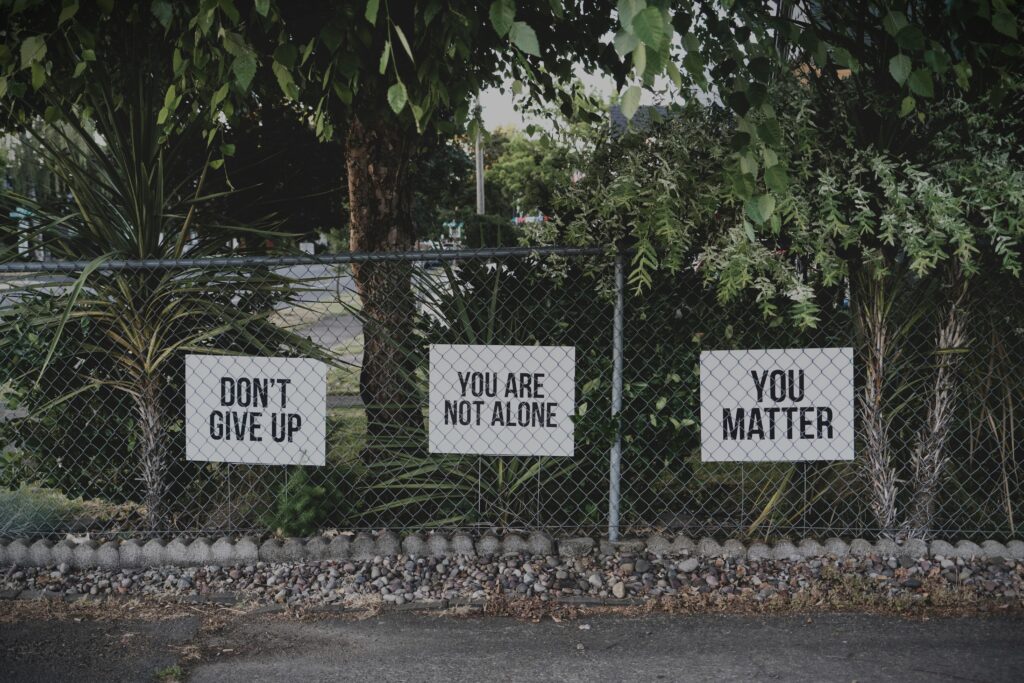By Chiamaka
We all experience tough times, but it’s heartbreaking when someone close to us is hurting. You might notice your friend withdrawing, losing interest in things they once enjoyed, or just not acting like themselves.
While it can be hard to know exactly what to say or do, your presence, empathy, and support can make a real difference.
Supporting a friend who is struggling with their mental health doesn’t require professional skills, just compassion and understanding. Even small gestures can go a long way.
Who is a Struggling Person?
When someone is described as “struggling,” it means they are facing significant difficulties in their life, emotionally, mentally, physically, or socially. This can include mental health challenges, financial hardship, relationship issues, or personal setbacks. These struggles often go unseen but can weigh heavily on a person’s daily life.
Below are five simple but powerful ways to be there for a friend who may be struggling silently.
How to Help a Struggling Friend
1. Be Present and Just Listen
You don’t have to fix all the person’s problem.
Simply being present and offering a listening ear can provide enormous relief to someone who feels overwhelmed. People experiencing mental health challenges often feel isolated or misunderstood.
When your friend opens up, practice active listening. Put your phone away, make eye contact, nod, and validate their feelings. You might say:
– “Oh, that sounds really tough.”
– “I can’t imagine how hard that must be.”
These simple statements show that you care and help your friend feel heard without judgment.
2. Ask Open-Ended Questions
Avoid yes-or-no questions like “Are you okay?” Instead, ask open-ended questions that invite deeper conversation:
– “How have you really been feeling lately?”
– “What’s been on your mind these days?”
Use a calm, kind tone. If your friend doesn’t want to talk, respect that. Let them know you’re there whenever they’re ready. Sometimes, knowing someone cares is comfort enough.
What You Can Say to Show You Care:
– “I’m sorry you’re going through this.”
– “It makes me sad to hear this happened.”
– “I don’t know what to say, but I’m here for you.”
– “I’m happy to listen anytime.”
3. Offer Practical Help
Mental health issues can make everyday tasks feel overwhelming. Your friend might struggle to cook, clean, or even get out of bed. One meaningful way to help is by offering support with small, manageable tasks:
– Help them prepare a meal.
– Accompany them to buy groceries.
– Offer to tidy their room together.
– Go with them to a doctor’s appointment or help them research mental health services.
Even gentle daily reminders, to eat, drink water, or take breaks can be acts of kindness.

4. Encourage Professional Support
Your friendship is valuable, but it’s not a replacement for professional care.
If your friend’s struggles are severe or persistent, gently encourage them to speak with a therapist or counsellor.
You can say:
– “It might really help to talk to a therapist about what you’re going through.”
Let them know that seeking help is not a weakness, it’s a brave and healthy step. If you’ve ever seen a therapist yourself, sharing your experience may reduce any fear or stigma they feel.
5. Stay in Touch
Support isn’t just about showing up once, it’s about being consistent. Mental health recovery isn’t always linear, your friend may feel better one day and overwhelmed the next.
Continue checking in regularly with messages like:
– “I’m thinking of you today.”
– “How are you feeling this week?”
Make time for short visits, walks, or calls. Celebrate their progress, no matter how small. Your steady presence can be a powerful reminder that they are not alone.
Bonus Tips
- Don’t minimize their experience. Avoid saying things like “It could be worse” or “Just stay positive.”
- Avoid giving unsolicited advice. Listening is often more healing than problem-solving.
- Respect boundaries. Don’t force your friend to talk or take actions they’re not ready for.
- Take care of yourself. Supporting someone can be emotionally draining. Make sure you’re also prioritizing your own well-being.
Conclusion
Helping a struggling friend doesn’t mean you have to be a therapist. What matters most is that you show up, with empathy, patience, and a willingness to listen. Even small, thoughtful actions can have a huge impact.
Sometimes the most important thing you can do is just show up and say, ‘‘You’re not alone”.
Mental health matters and so do your friends. If this post reminds you of someone, take a moment today to reach out. A simple message might mean more than you know.
If you’re passionate about mental health and want to be part of the change, keep speaking up, supporting others, and spreading hope.
Together, we can help build a world where no one feels they have to struggle in silence.
RECOMMENDATION
If you need help or know someone with their mental health or mental illness, check out the resource page for mental health resources.


